The Flotilla
Including excerpts from the Resilients Handbook, The Flotilla backstory and Flotilla Survival Guide. Images from the Resilients case studies and related projects, including Control of the Commons, Turnton, Buratinas Taxi Service, Rocket Boat Day, Marine CoLAB, Hotel Resilients, Future of the Delta and The Summit of Practical Utopias.
 The world is awash in information. Technological progress bubbles and staggers on the waves of oscillating supply chains. Technologies for distributed collaboration in augmented reality are thriving; people making and using them less so. Technologists are either brainwashed into amoral creatures serving the capitalist machinery, or drop out to become sought after hackers, feeding lo-tech resistance movements. Users of ubiquitous information technologies are plagued by novel syndromes (that some consider new abilities) caused by the relentless information overload and attention deficit.
The world is awash in information. Technological progress bubbles and staggers on the waves of oscillating supply chains. Technologies for distributed collaboration in augmented reality are thriving; people making and using them less so. Technologists are either brainwashed into amoral creatures serving the capitalist machinery, or drop out to become sought after hackers, feeding lo-tech resistance movements. Users of ubiquitous information technologies are plagued by novel syndromes (that some consider new abilities) caused by the relentless information overload and attention deficit.
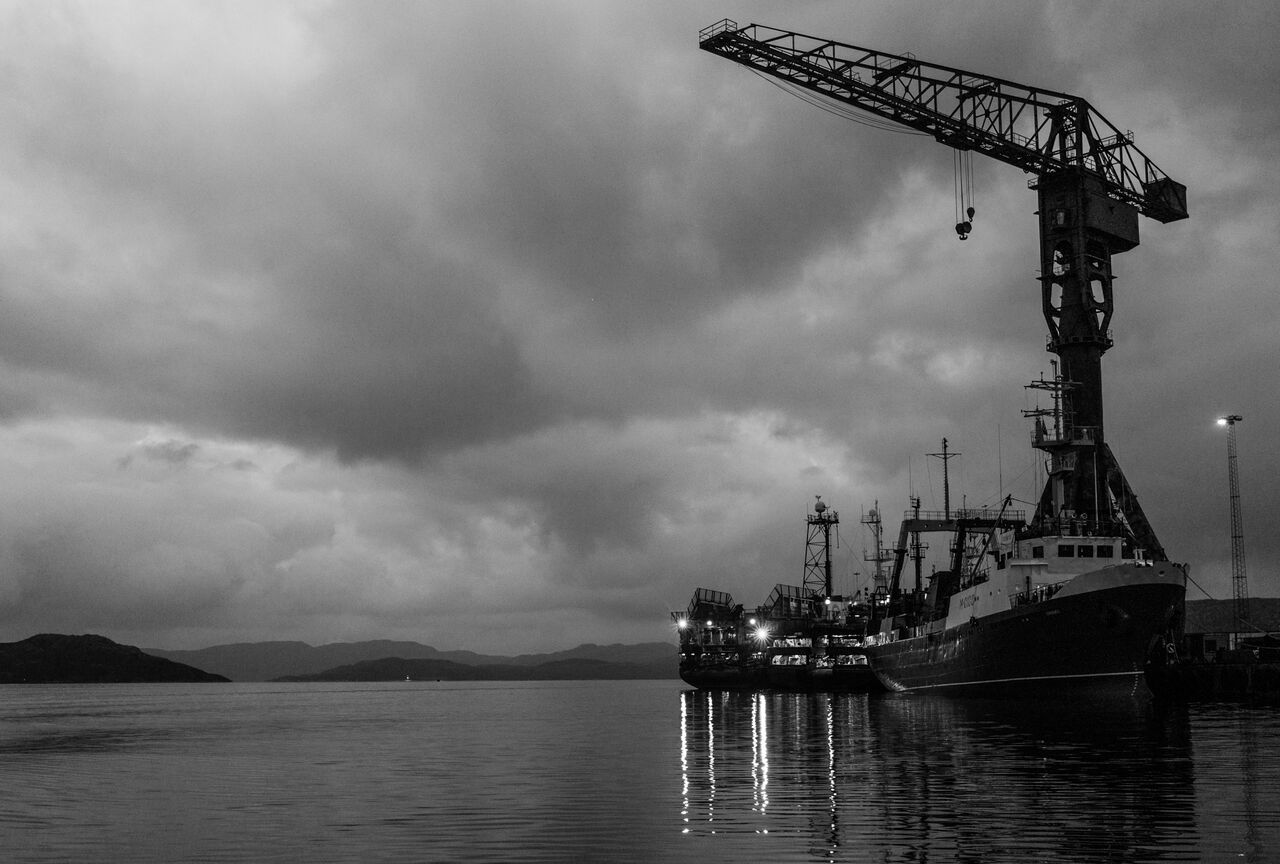
The Resilients Guild has lifted its anchor. Their floating premises, the Flotilla, set sail in 2012. Burnt out by decades of tilting at windmills, some Resilients now live permanently on the Flotilla’s boat-based premises, others are telepresent. They all occasionally re-connect through festive synchronous events, such as their (now traditional) Anti Apocalypse Day.
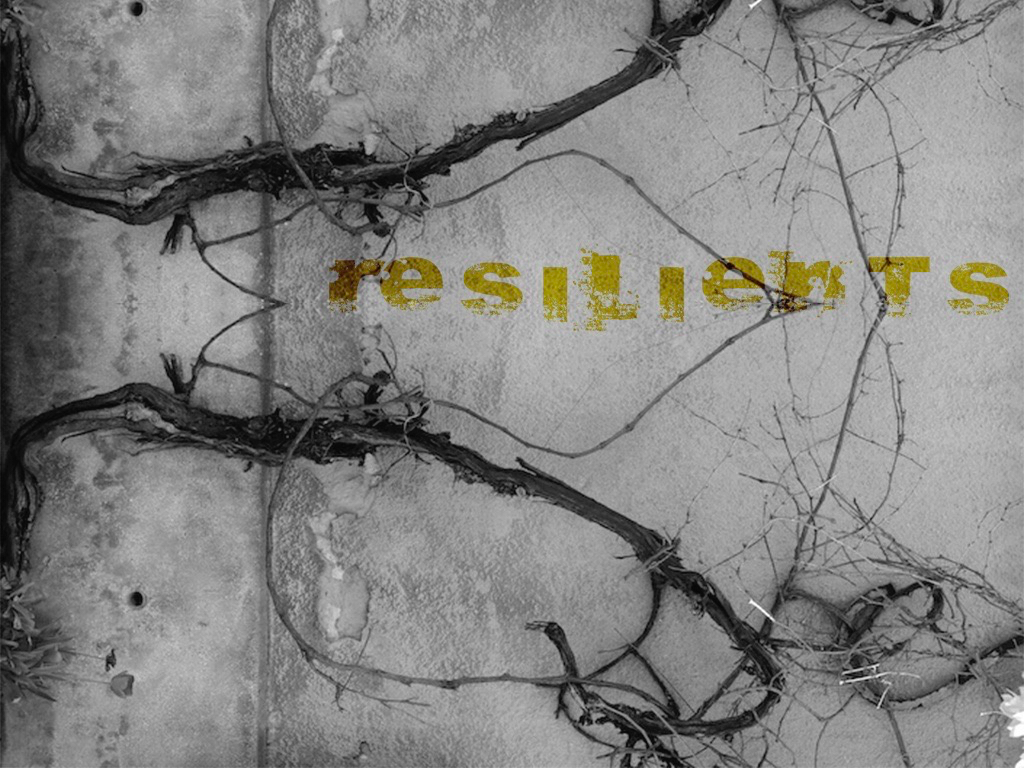
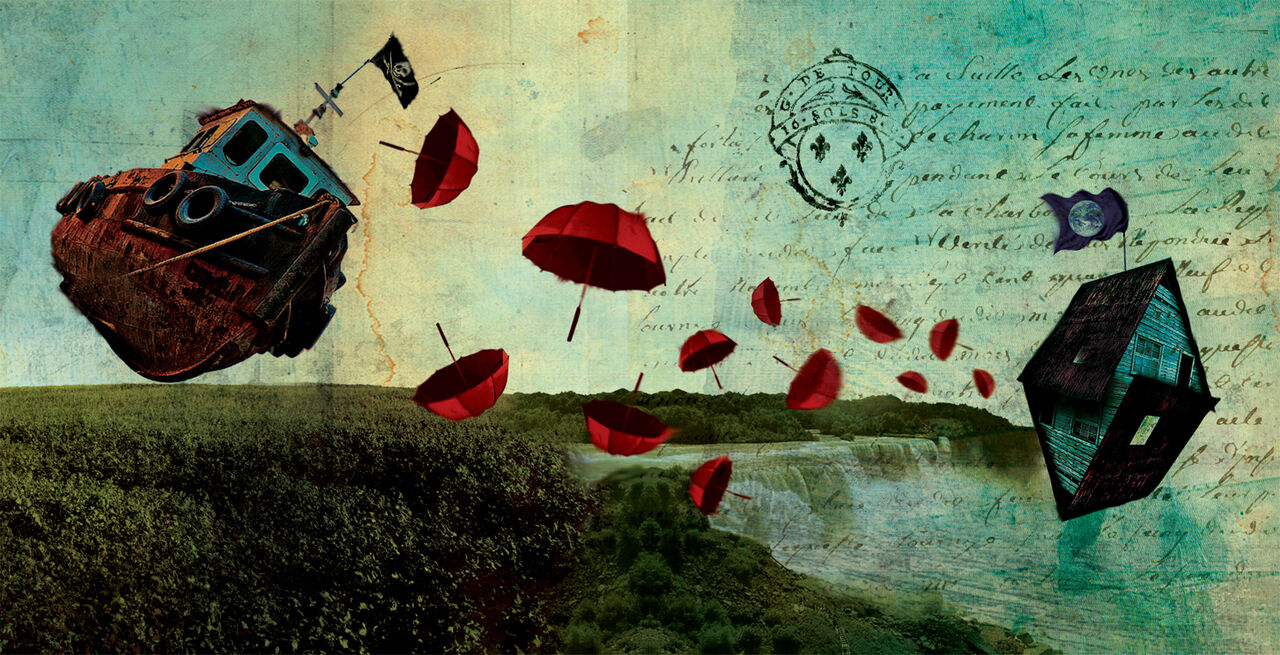
The Flotilla’s purpose is to reinvigorate people, places, and cultures it comes in contact with. Flotilla members channel their individual work to support this collective vision. In exchange, the Flotilla community takes care of its members’ basic needs, supporting a lifestyle that would not be possible elsewhere. Grown and maintained by its members, the world of the Flotilla embodies an emergent collective intelligence that lives, moves and adapts — a blueprint for interdependent community in uncertain times.
The Flotilla’s founders are a distributed, semi-nomadic troupe of Resilients with a shared, collective vision of the world and their place in it. The vision is emergent and inclusive: bubbling up from the personalities and activities of those involved. More than the sum of its parts, it is the group’s spirit and ethos, bursting from every pore, responding and adapting to constantly changing conditions.
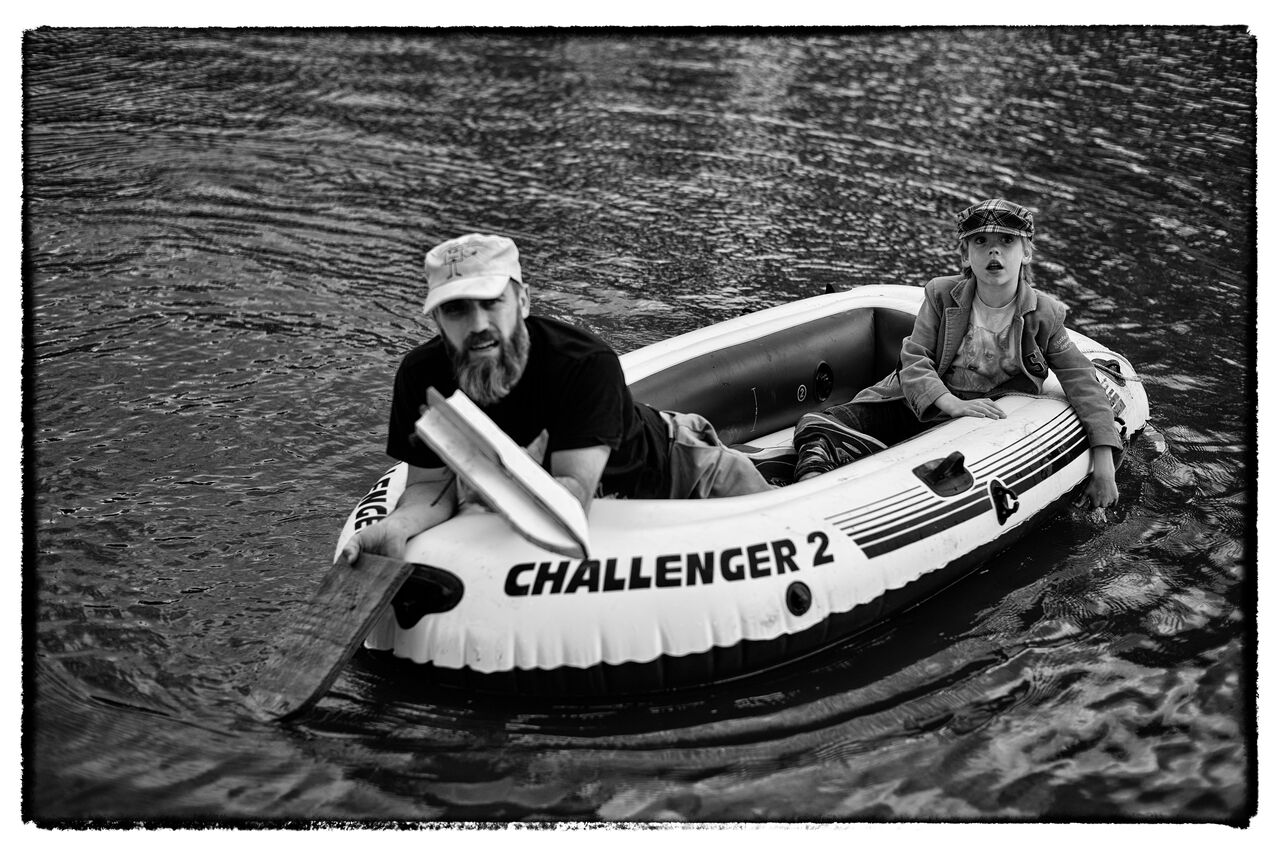
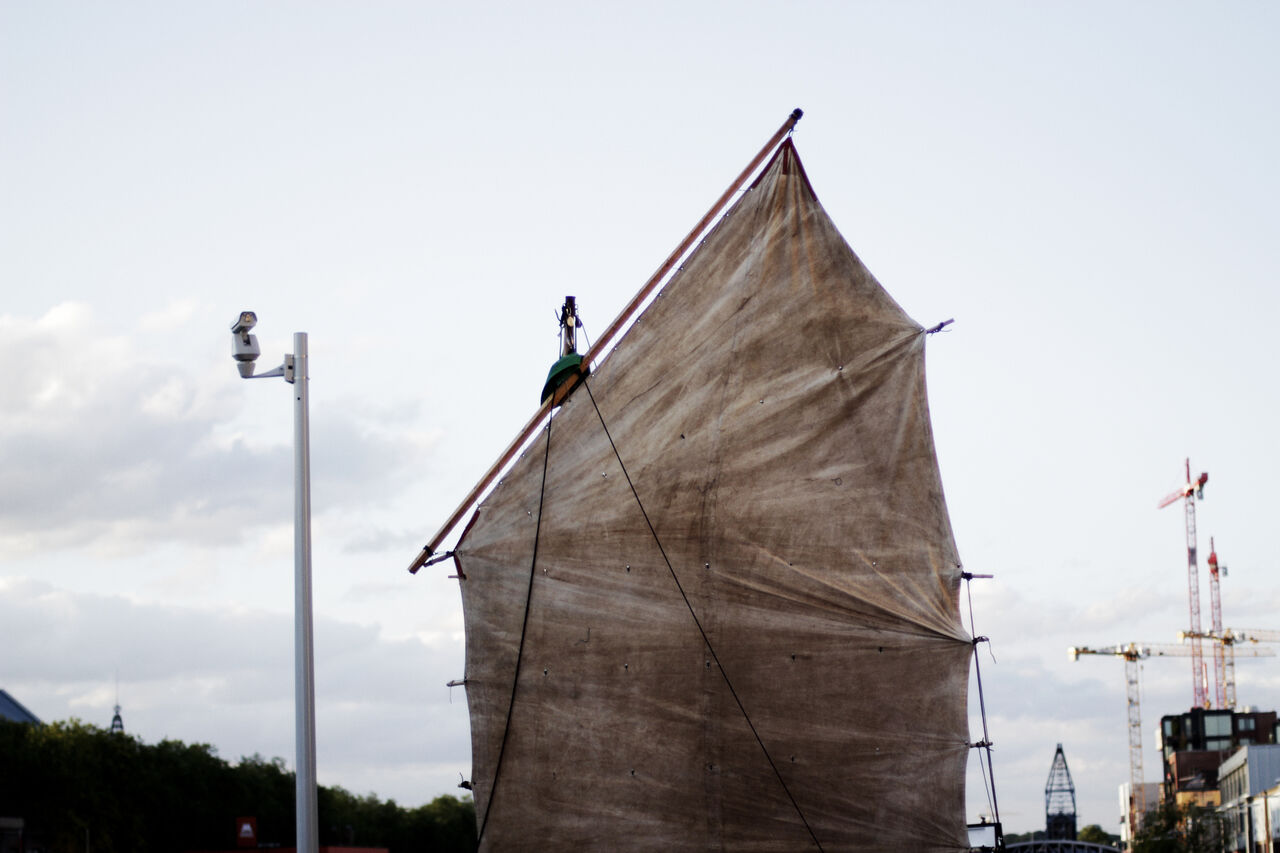
Some Resilients (and their extended intergenerational and multispecies families) live and work in physical proximity, on a ship resembling a giant Dutch woonboot, surrounded by a jumble of rafts and other vessels, buoyed on rising seas. Others are distributed around the world, physically distant but otherwise present and engaged. Every Flotilla member is equipped with a set of (scavenged) augmented reality and nanotech instruments, enabling multisensory interaction with teammates elsewhere.
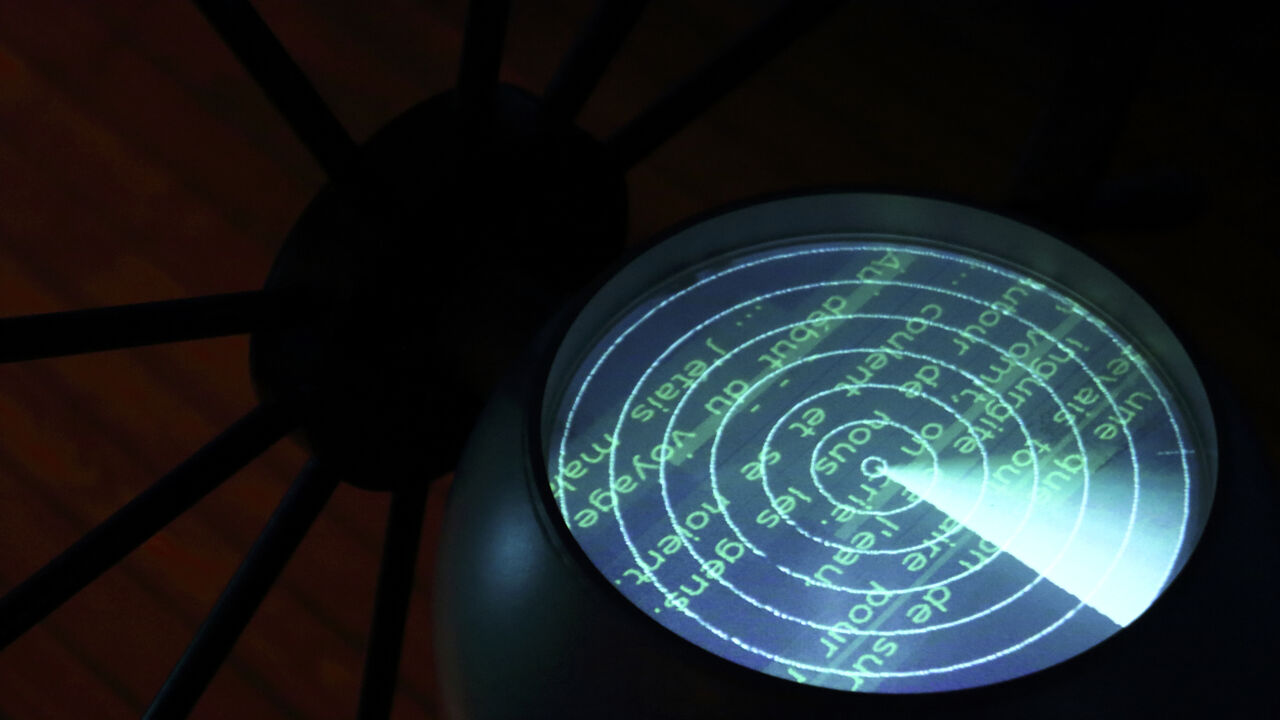
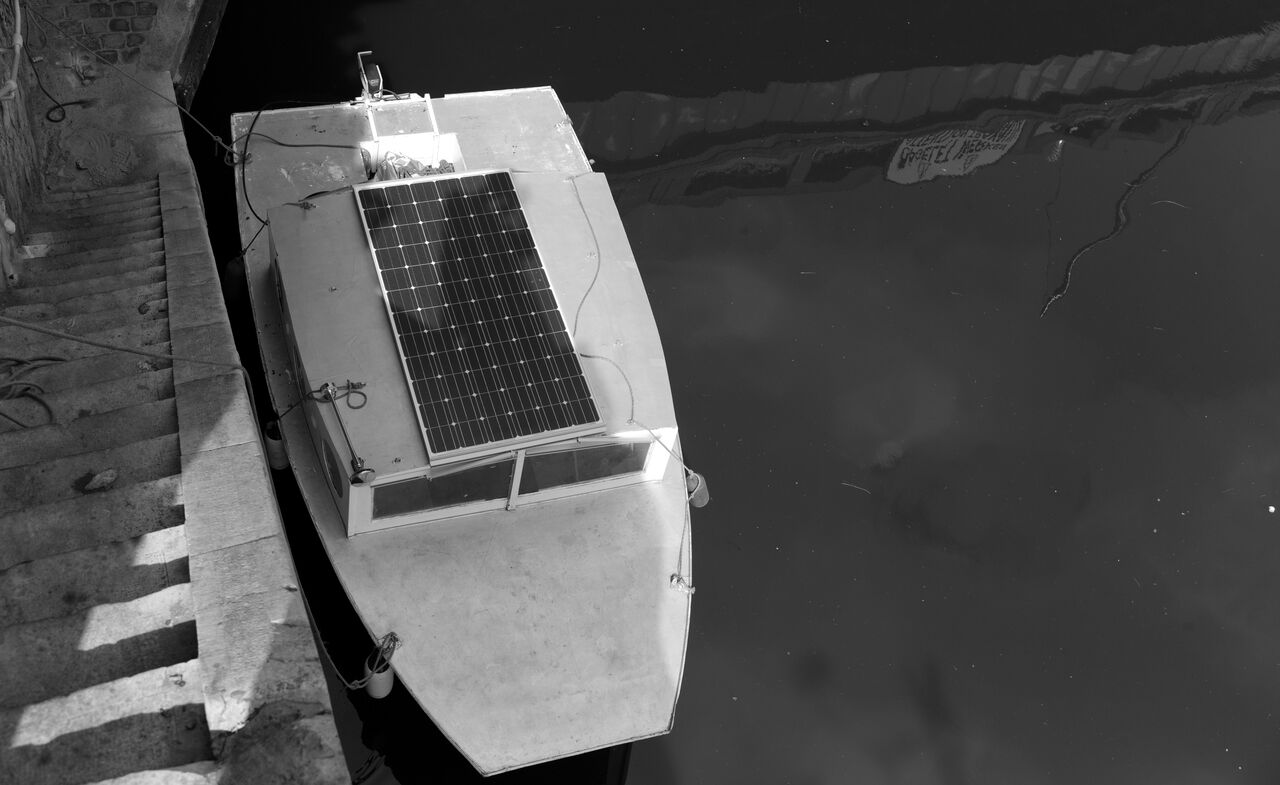
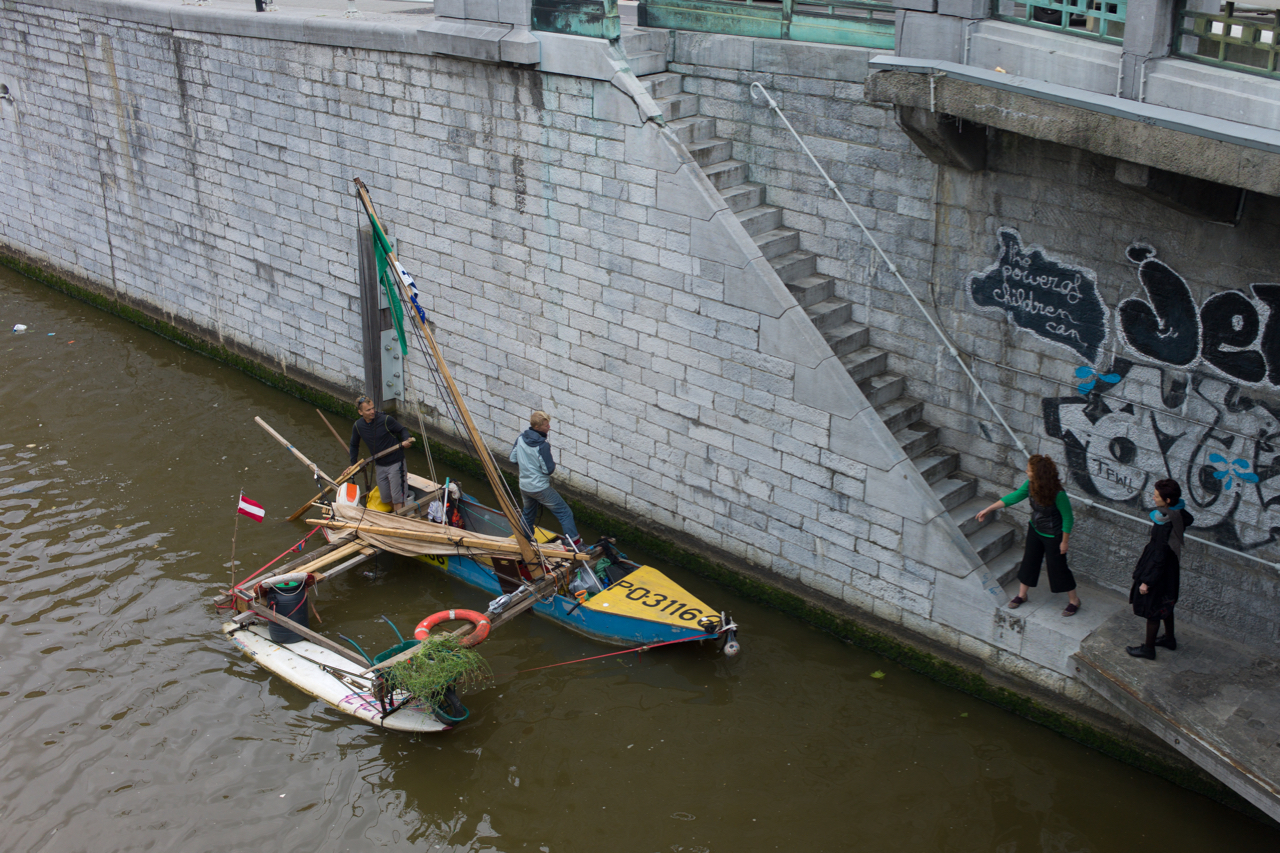
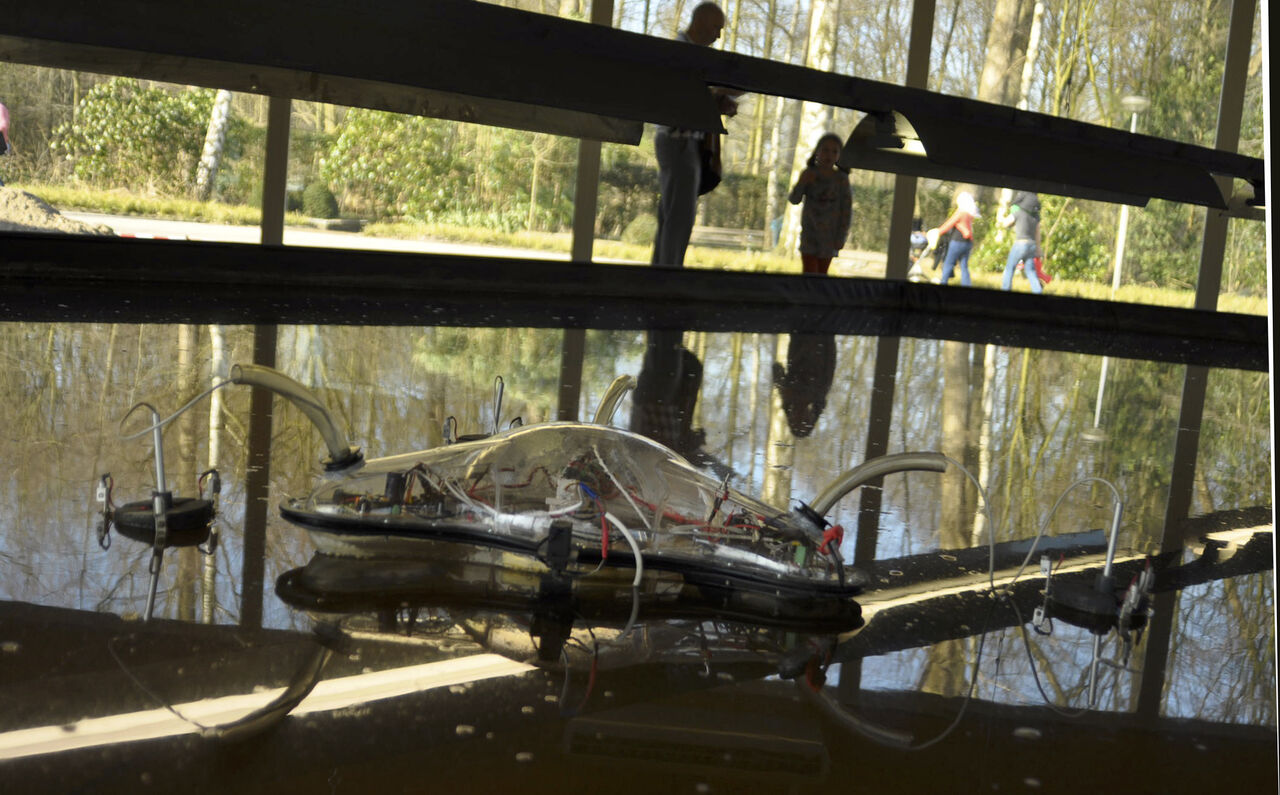
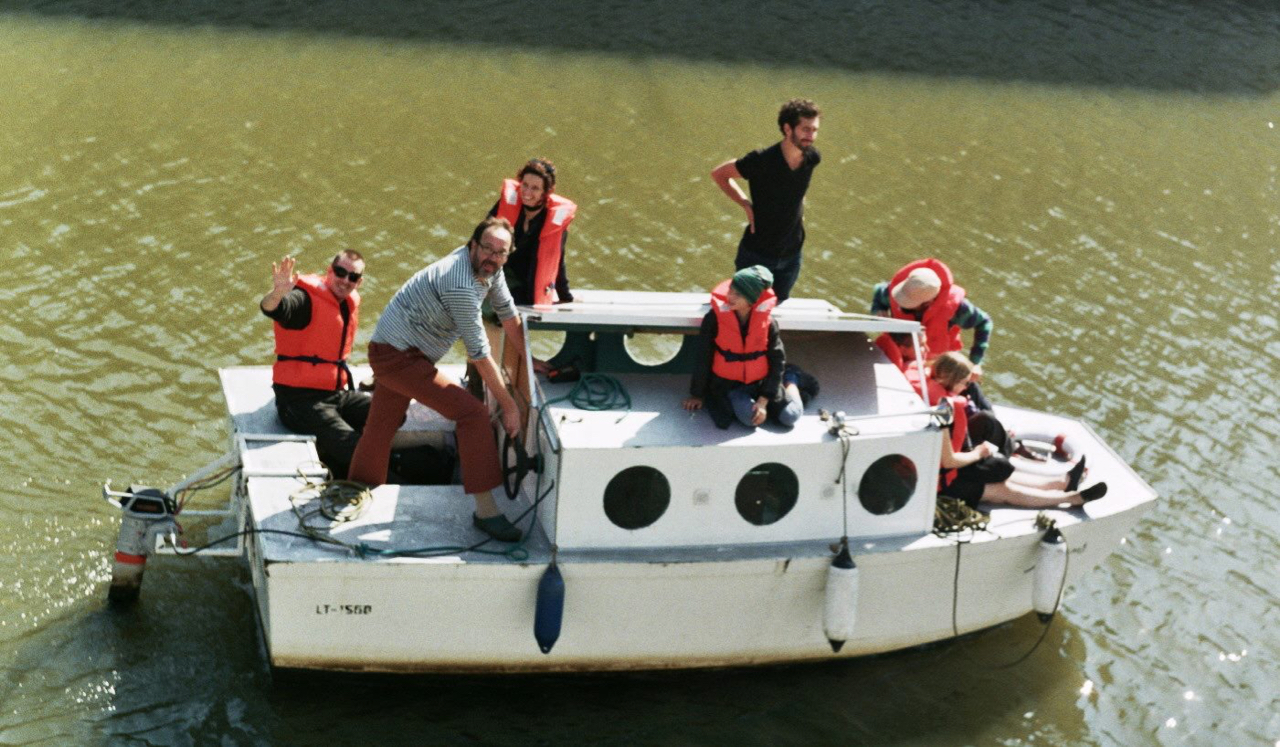
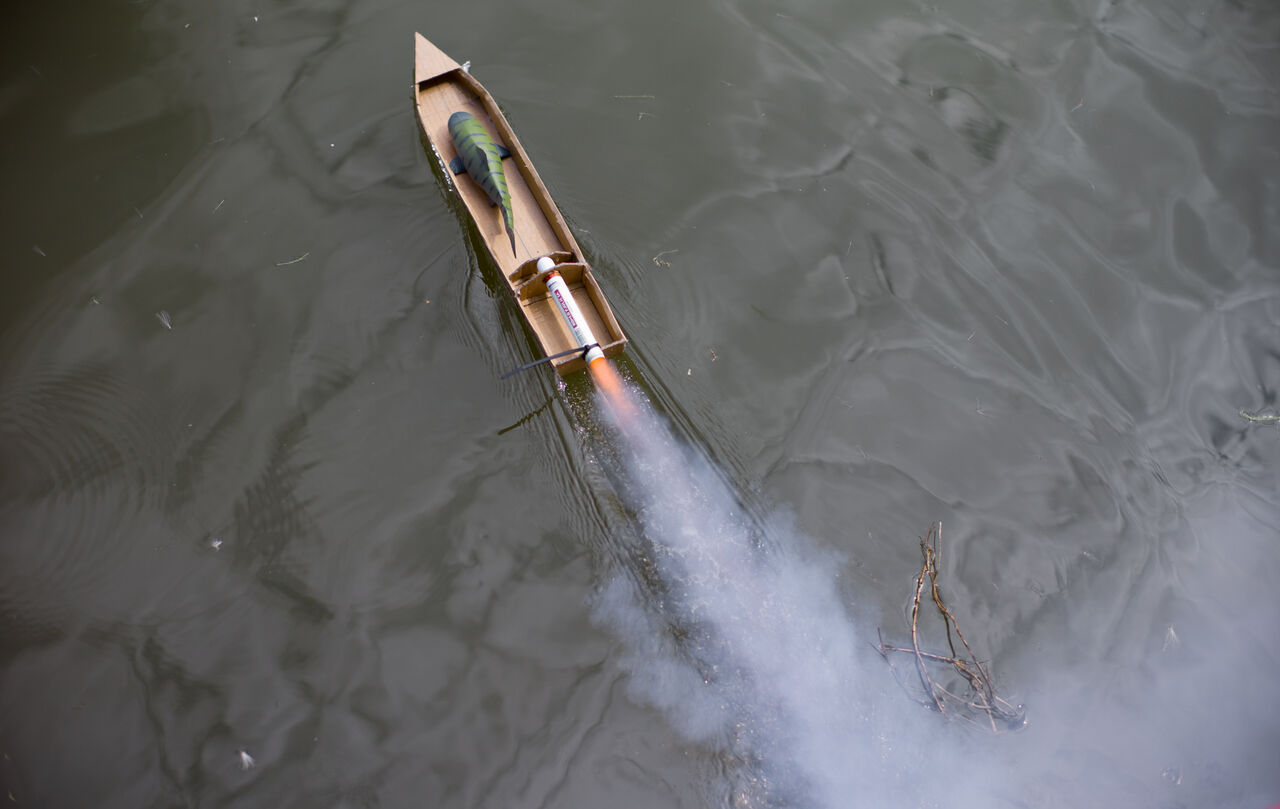
There isn’t much difference between life and work on the Flotilla. People’s roles are based on their self-reported strengths and talents. The working day is divided into thirds. One third involves maintaining the Flotilla’s grown and built resources (including the humans); one third is dedicated to community building, governance and exchange with the world beyond the Flotilla; and one third is dedicated to personal pursuits, including research, tinkering, arts, craft, and contemplation. Education happens informally — in ad-hoc spaces, in collectives of people eager to learn. People’s wellbeing is supported by complementary medicine, psychologists and coaches, nutritionists and massage therapists. There is sufficient redundant human capacity in the network, so that no one has to work beyond their abilities. Everyone should have sufficient time to relax (though that may not always be the case).
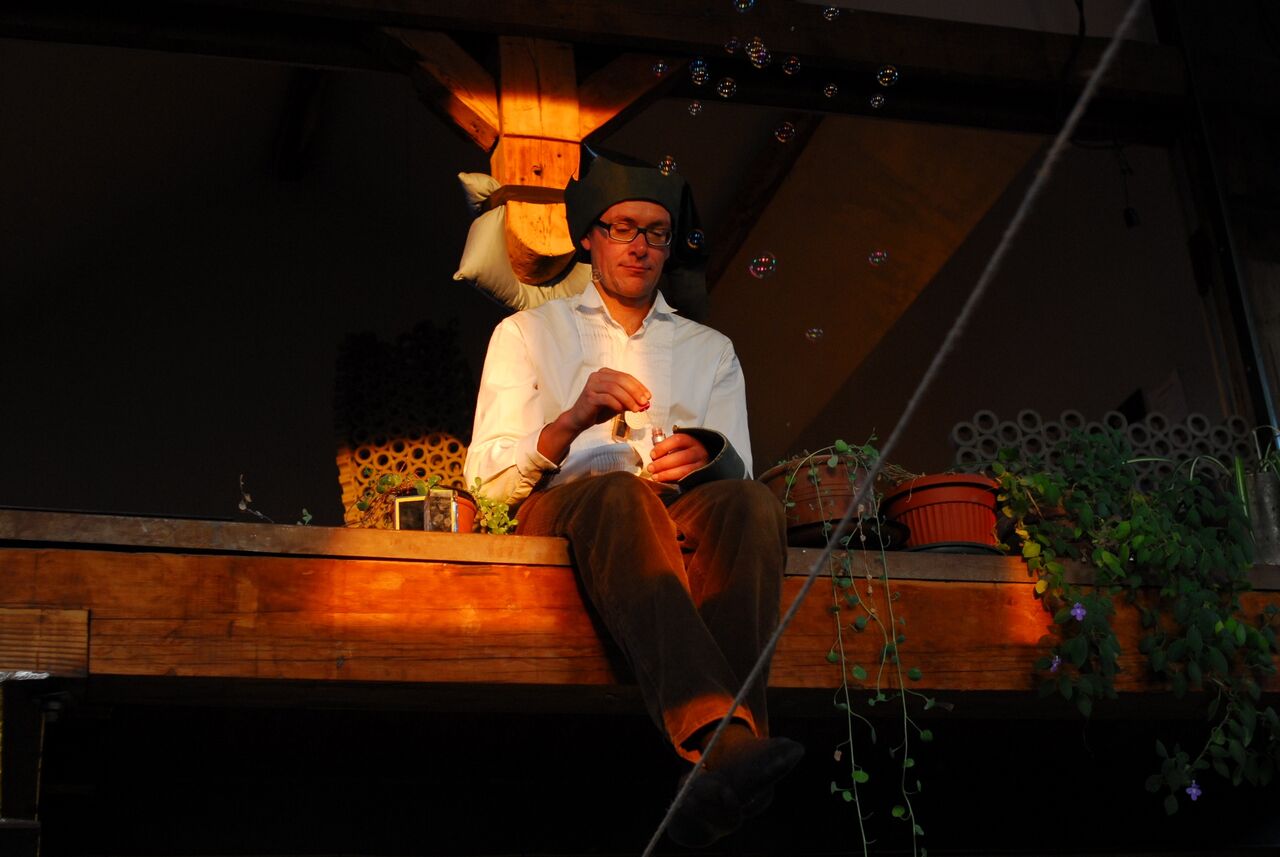
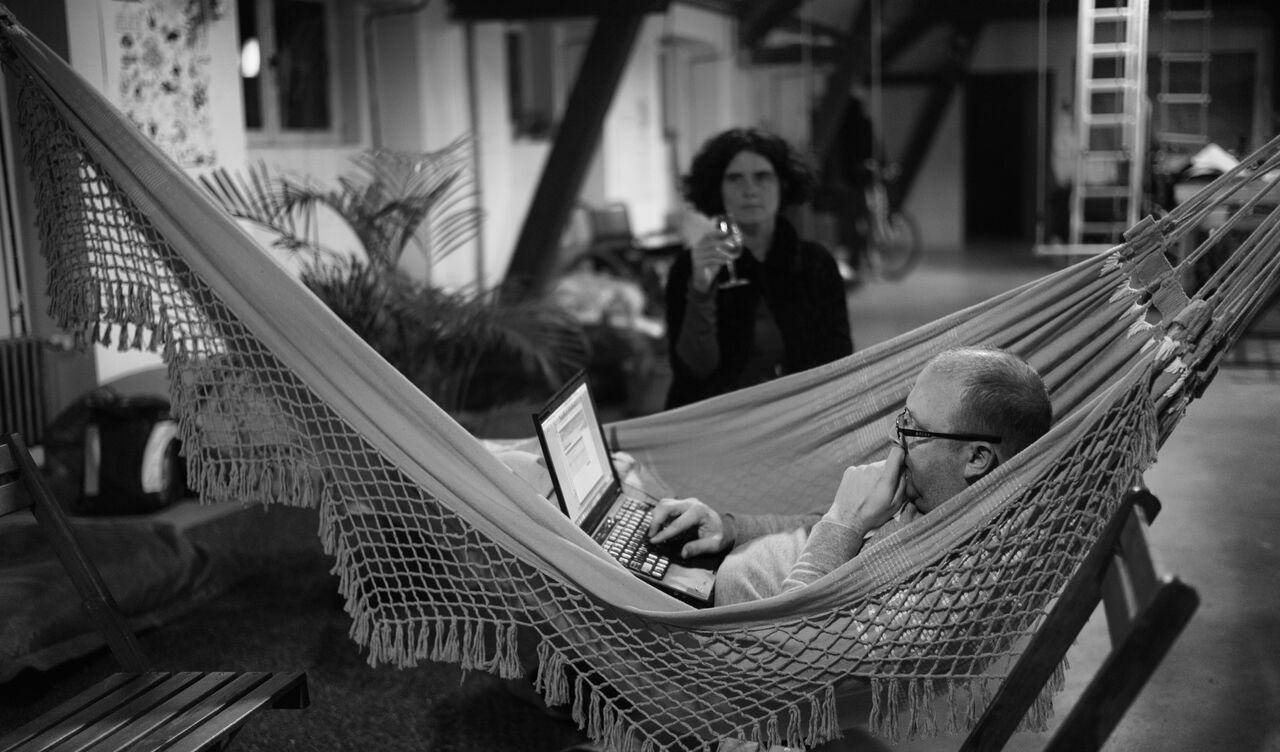
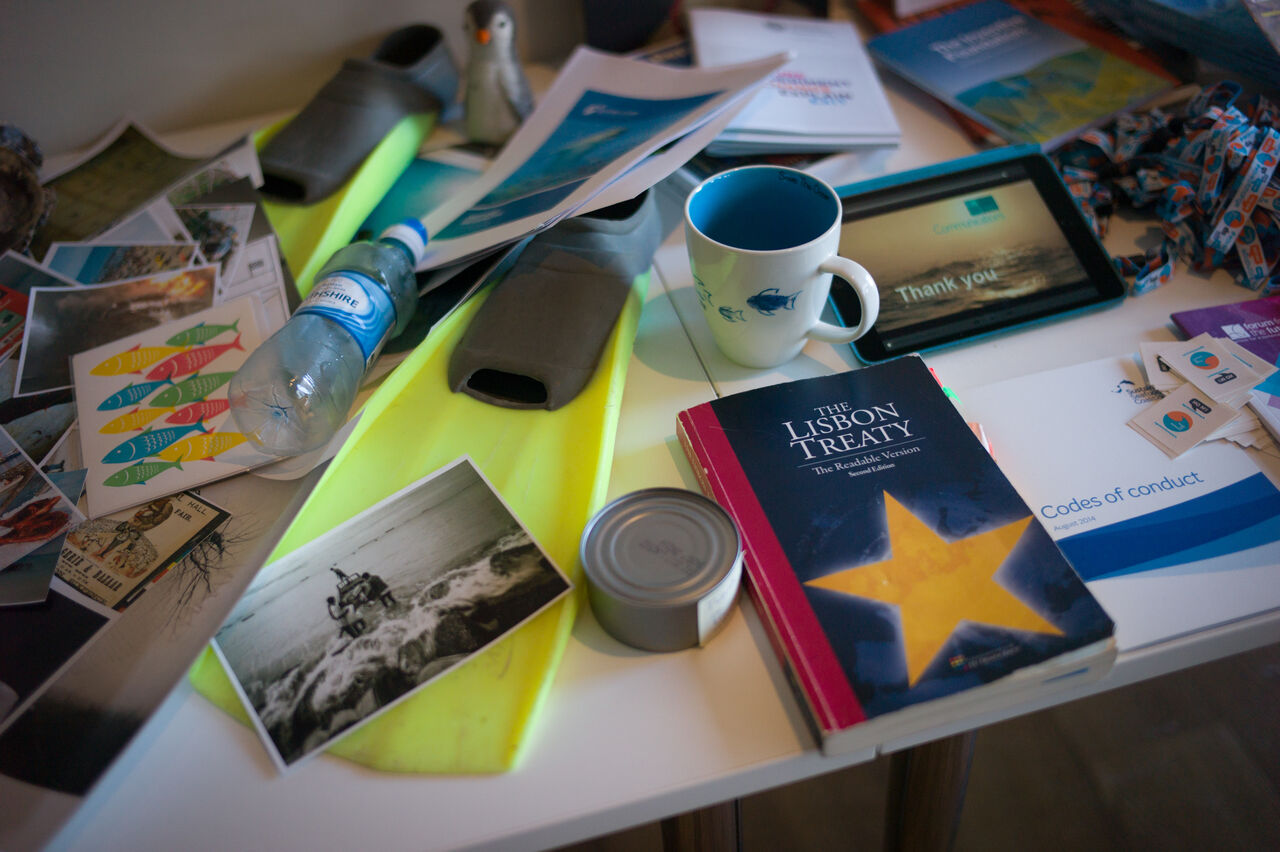
The Resilients’ backgrounds are diverse and transdisciplinary, and so too are the Flotilla’s products and services, supporting cultural revitalisation in the settings and communities they encounter — from Open Sauces cooking classes to Feral Business coaching, Splinterfields design and coding workshops, cultural compost, and assorted merch. The Resilients reach back to pre-industrial cultures, restoring endangered crafts, tools and practices, and combining them with their post-industrial counterparts, including technological innovation and non-hierarchical learning.
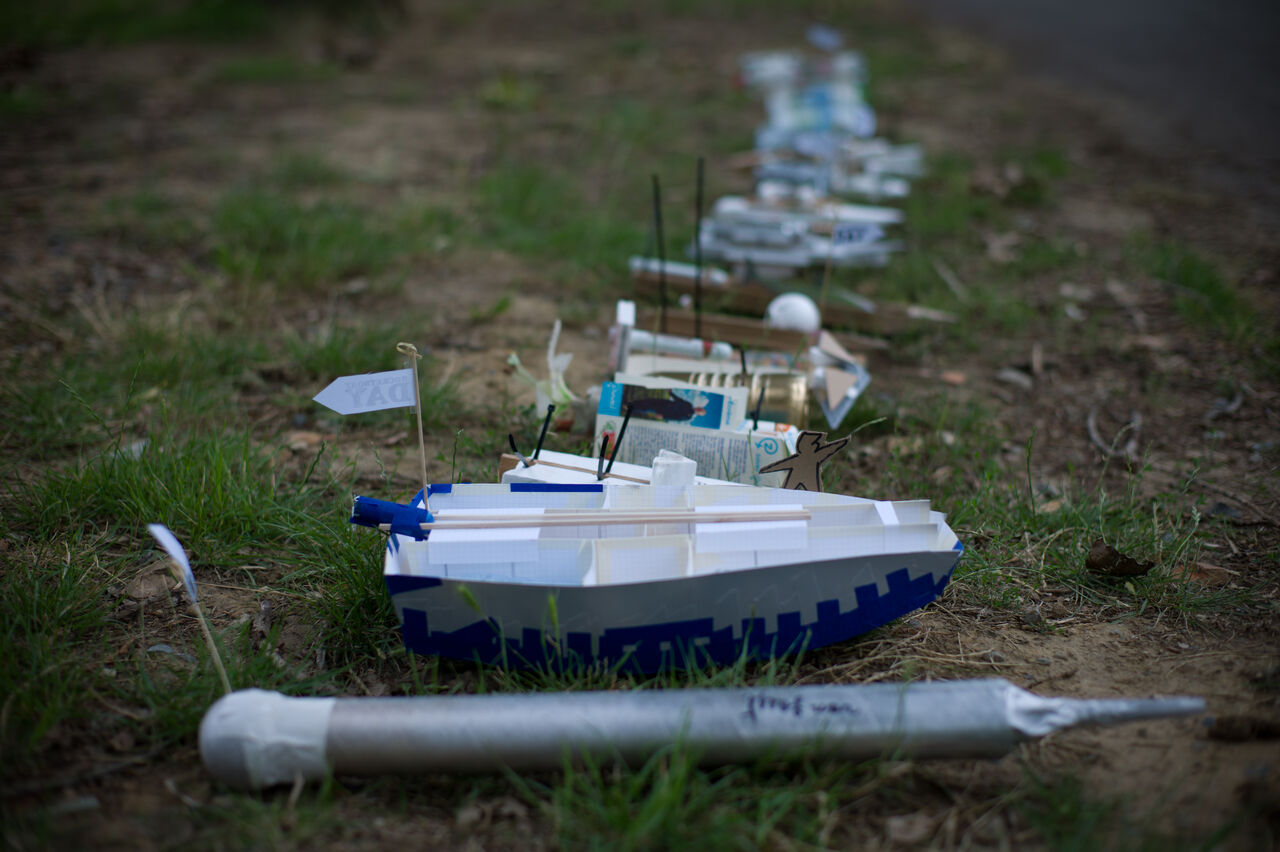
Material resources (food, materials, energy) are partially generated (grown, harvested, fabricated, cultured) by the Flotilla itself, but also traded and shared with communities, visiting individuals, and various other economic entities. The Flotilla is financed through the exchange of products and services, cultural regeneration collaborations with external partners, patronage, crowdsourcing, and microfinance. The members have grown up in cultures of feast and famine, and know how to deal with uncertainty. Life is not always financially abundant, but it is never resource poor.
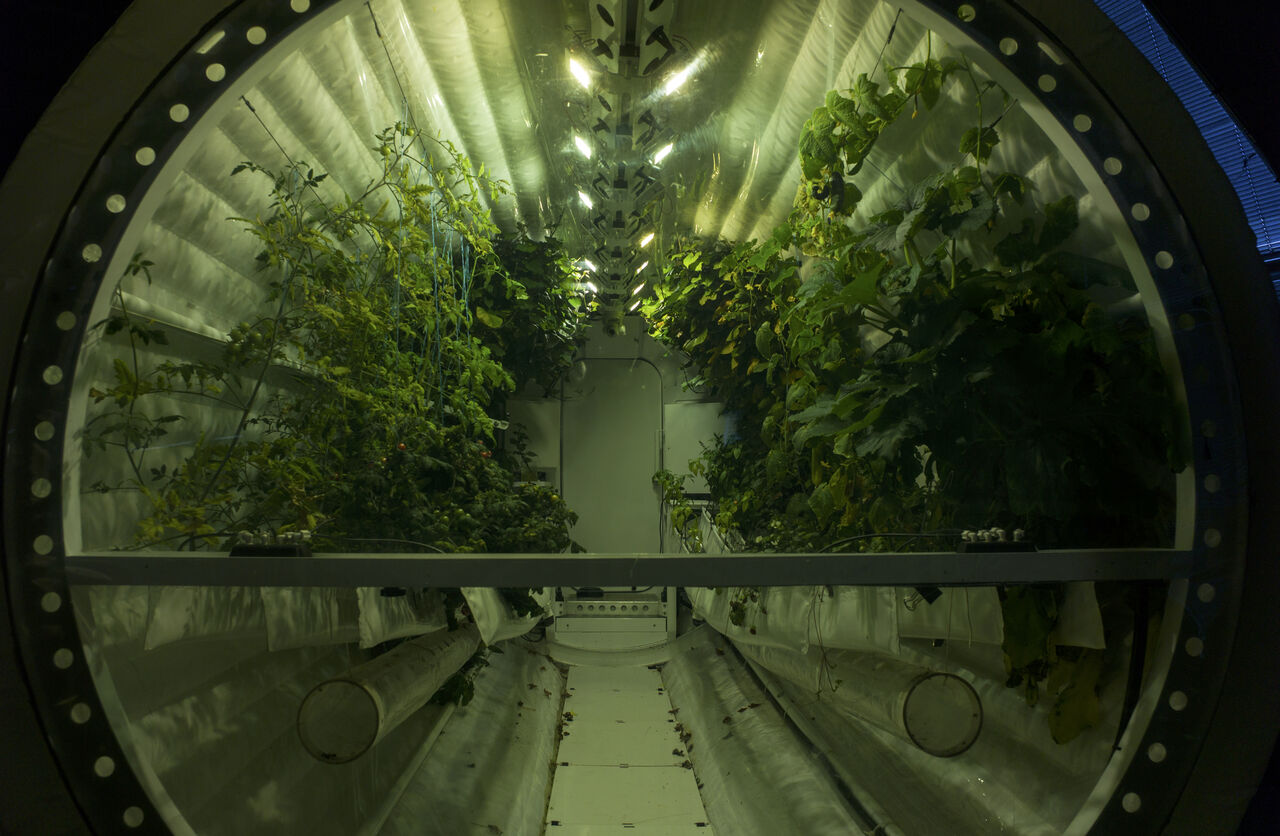
Responsibility is shared through a clear bottom-up governance structure, which ensures all the processes and activities contribute to the Flotilla’s emergent vision. Leadership exists, but it is neither fixed nor in-your-face. In the Flotilla’s crew, governance resembles workers’ socialism. The wider Resilients network’s leadership act as stewards of the collective vision, calibrating the balance of benevolent dictatorship and compassionate anarchy (depending on circumstances and threats to survival). The stewards are able to “hold the vision”, adapting and translating it to shape steer life and work aboard.
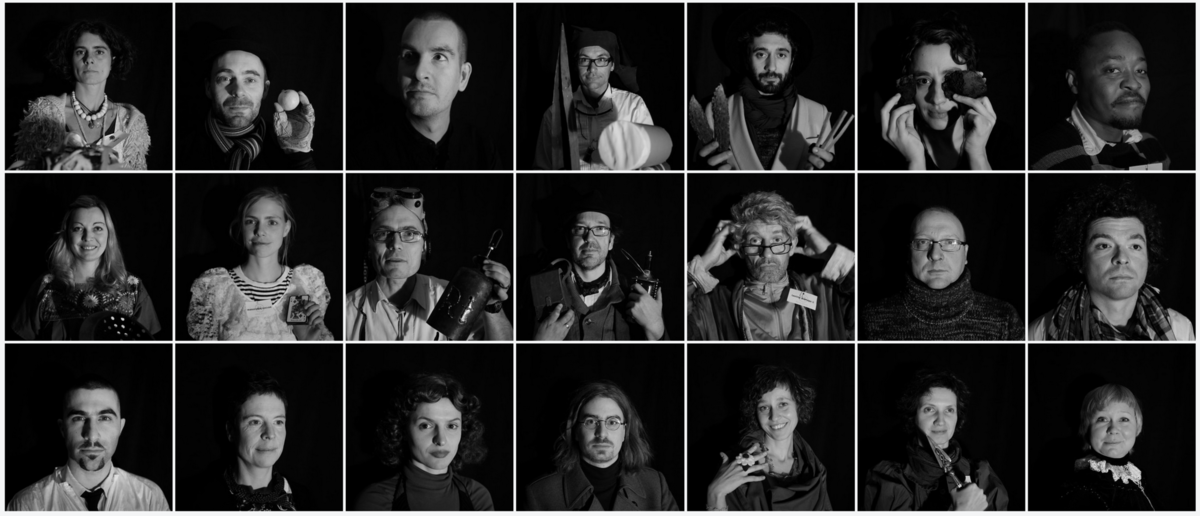
12/12/12, Anti-Apocalypse Day
Excerpts from the Flotilla Logbook
On the 12th of December 2012, we observed the end of Bak’tun 13 in the Mayan long-count calendar, with an event celebrating cultural revitalisation in all shapes and sizes. The Anti-Apocalypse Day gathered the dispersed Resilients on the Flotilla for the first time. Some of the festivities, activities, and gatherings were planned, others were emergent. Craft workshops, readings, hackfests, contemplation sessions, tastings, performances, and other forms of participatory learning were held on the Flotilla for 24 hours, an equivalent of three crew changes.
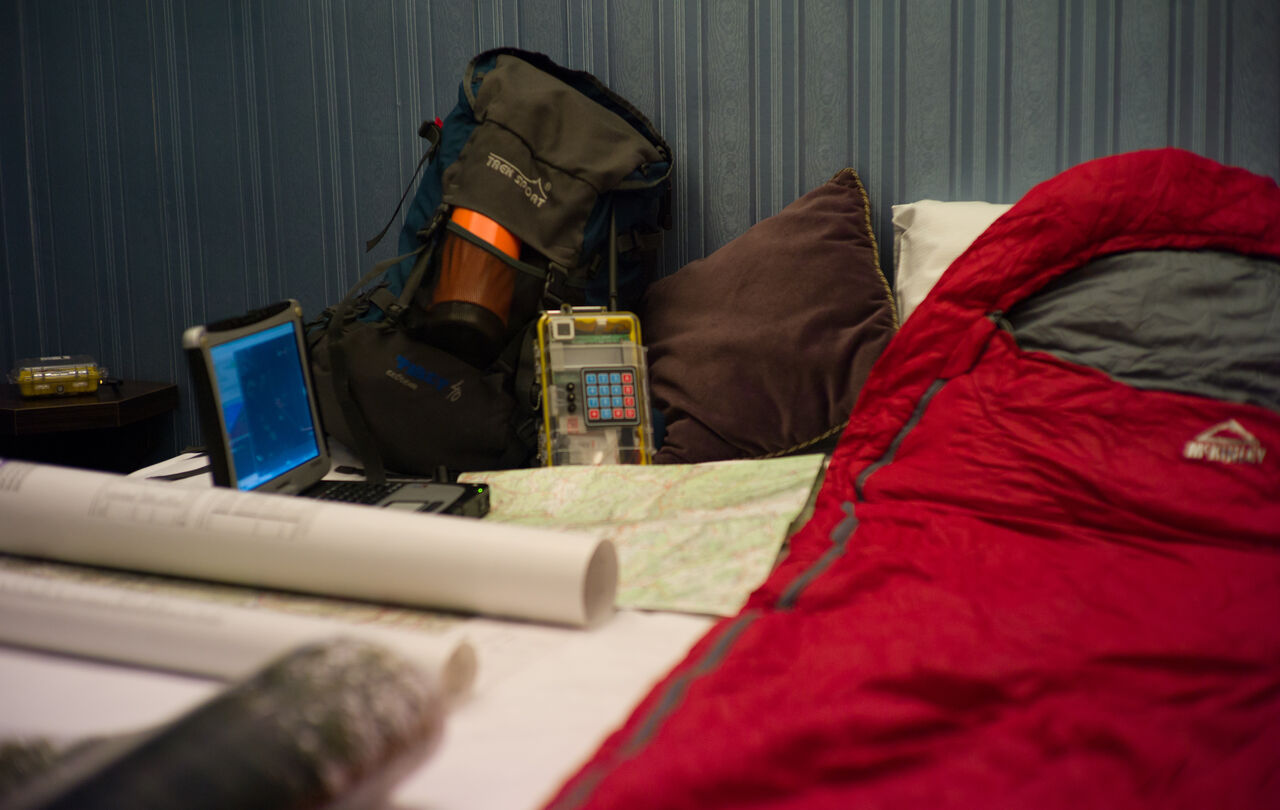
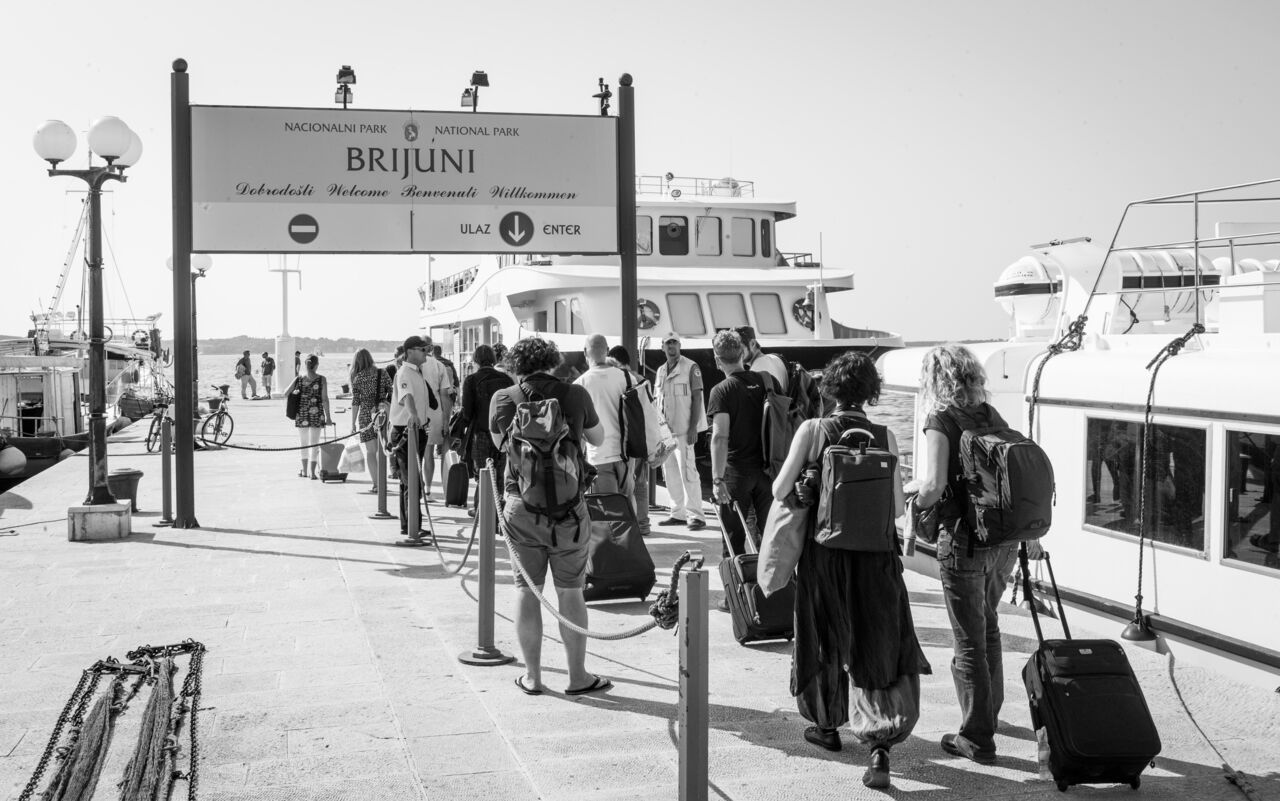 Things to keep in mind before arriving on the Flotilla: Our resources are limited, and must be carefully shared amongst the inhabitants (human or otherwise). Everyone has a role to play in keeping the Flotilla afloat, and in return the Flotilla provides shelter and acts as a safe haven from the world’s troubles, including relentless bureaucratisation and rampant individualism.
Things to keep in mind before arriving on the Flotilla: Our resources are limited, and must be carefully shared amongst the inhabitants (human or otherwise). Everyone has a role to play in keeping the Flotilla afloat, and in return the Flotilla provides shelter and acts as a safe haven from the world’s troubles, including relentless bureaucratisation and rampant individualism.
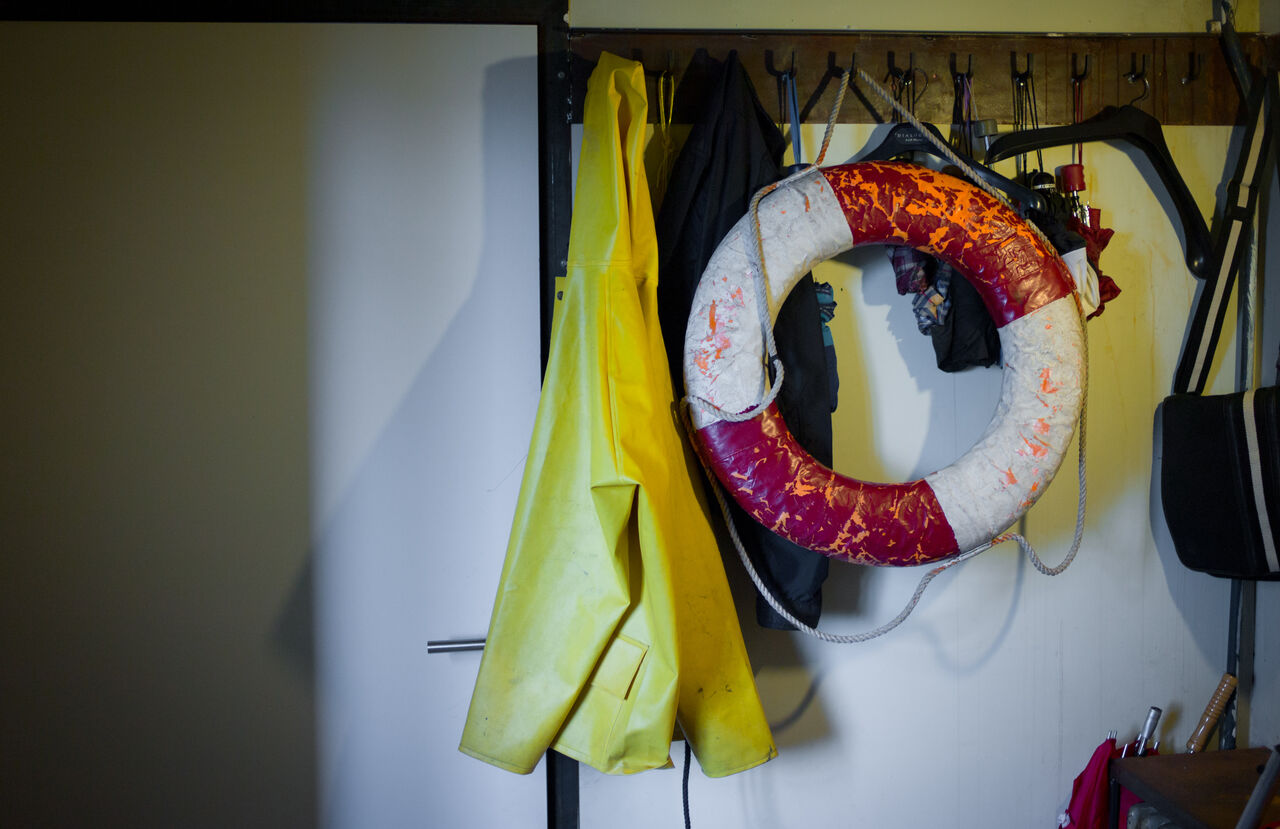
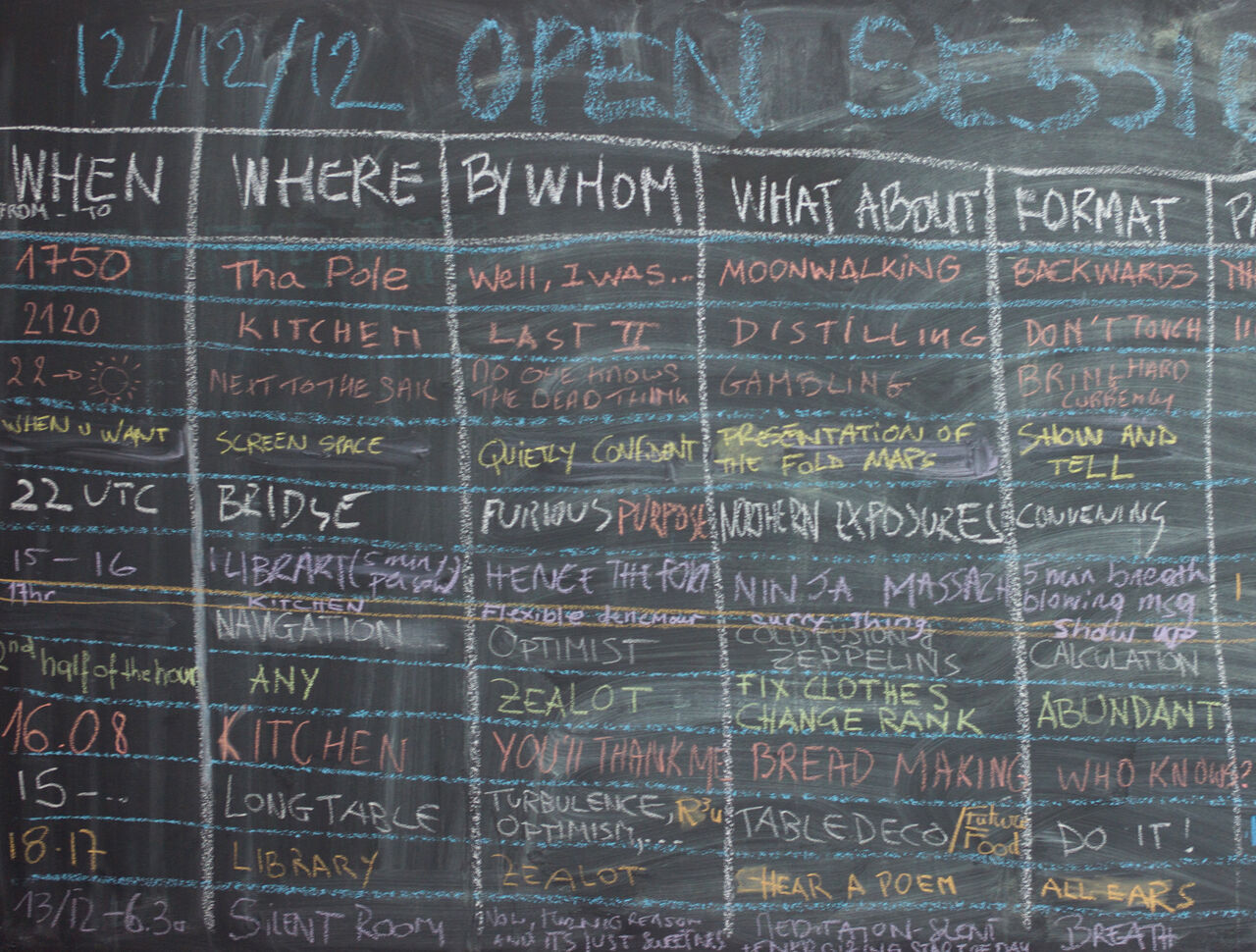
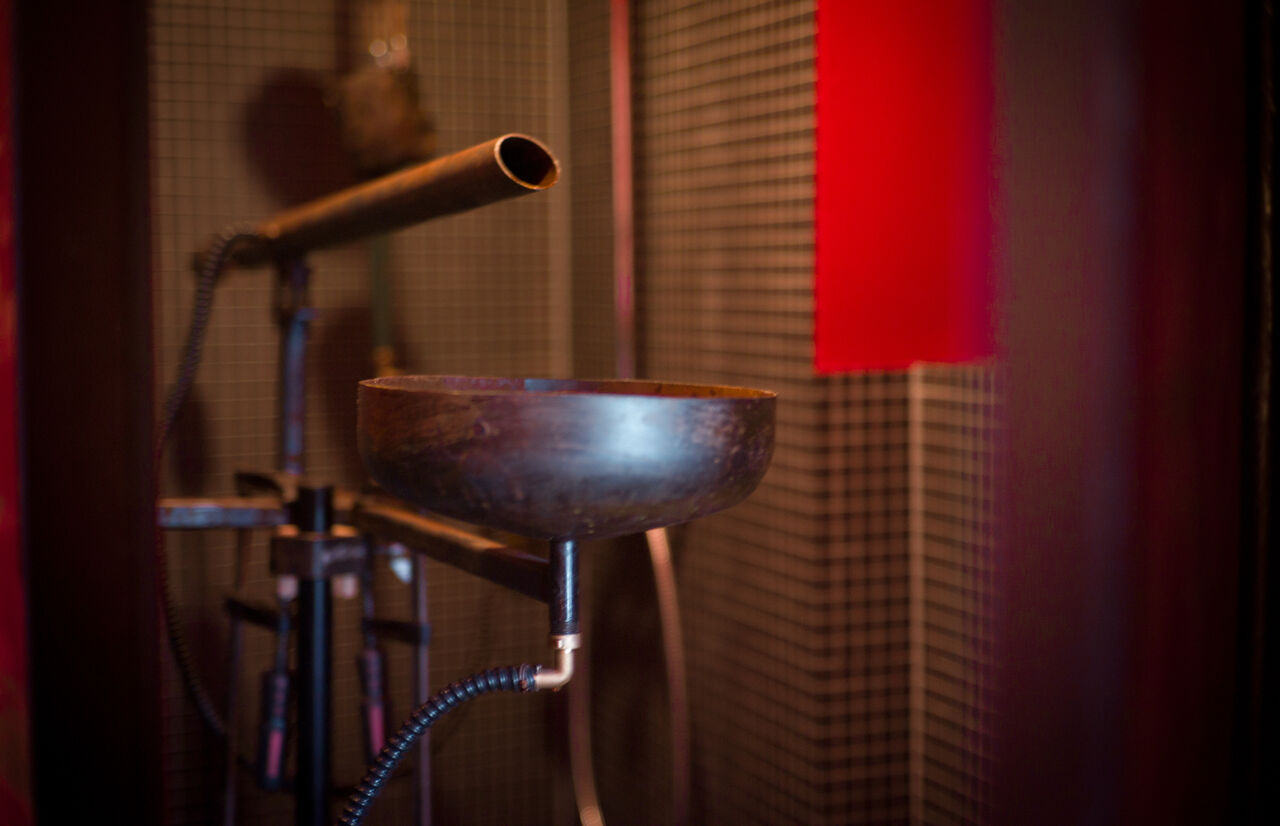
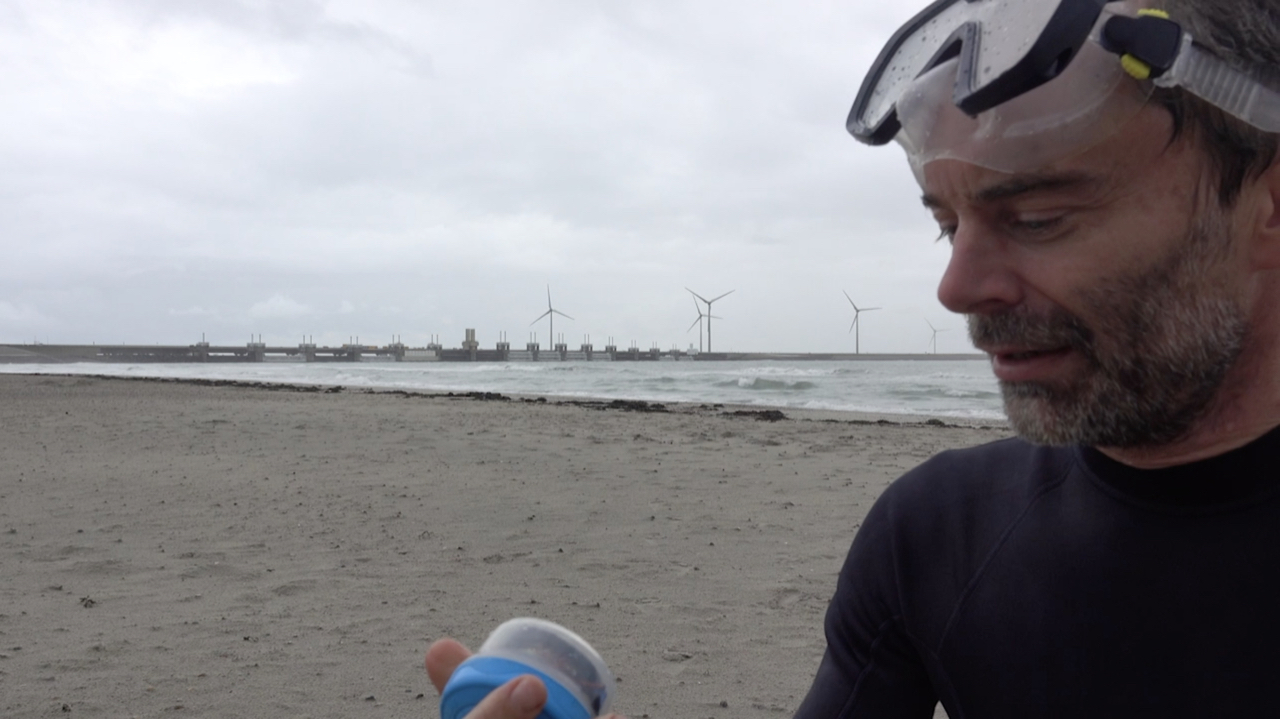
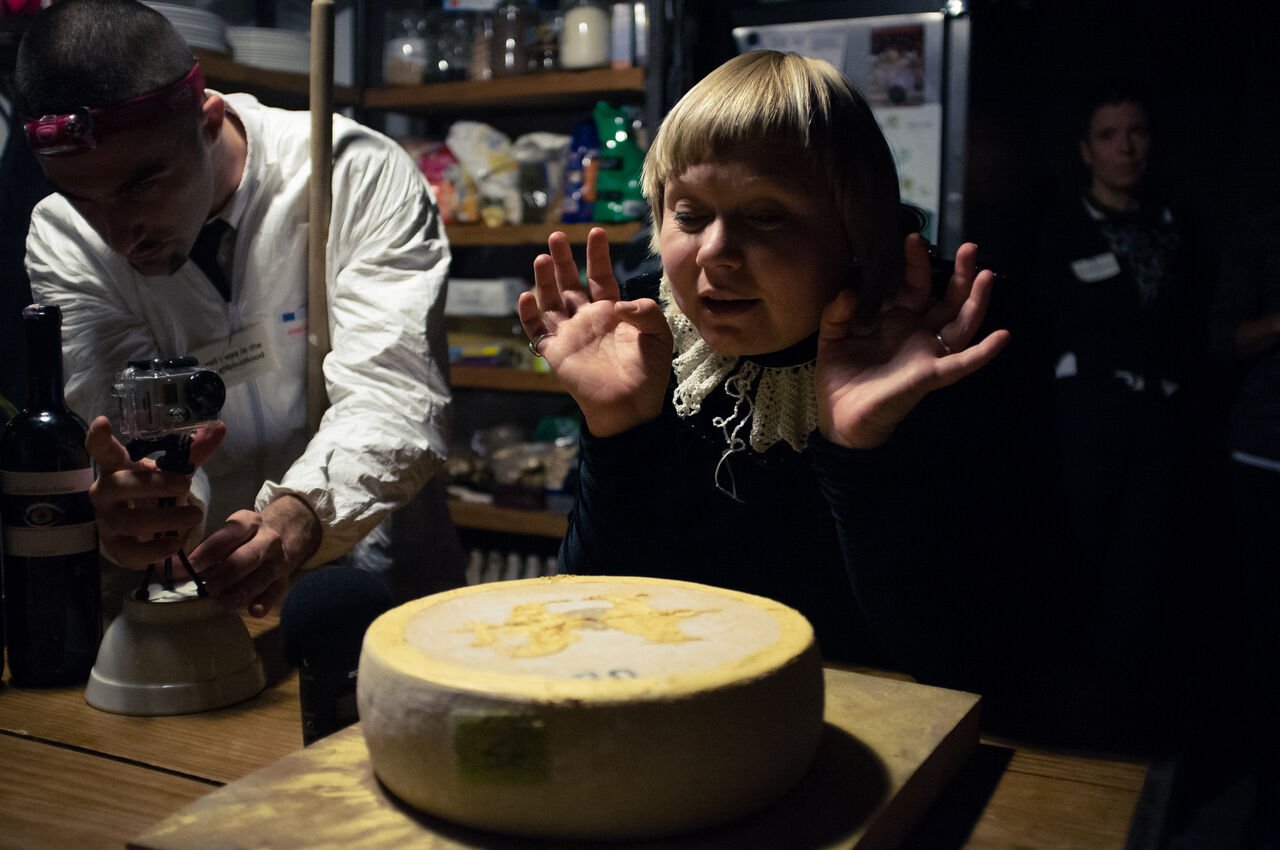
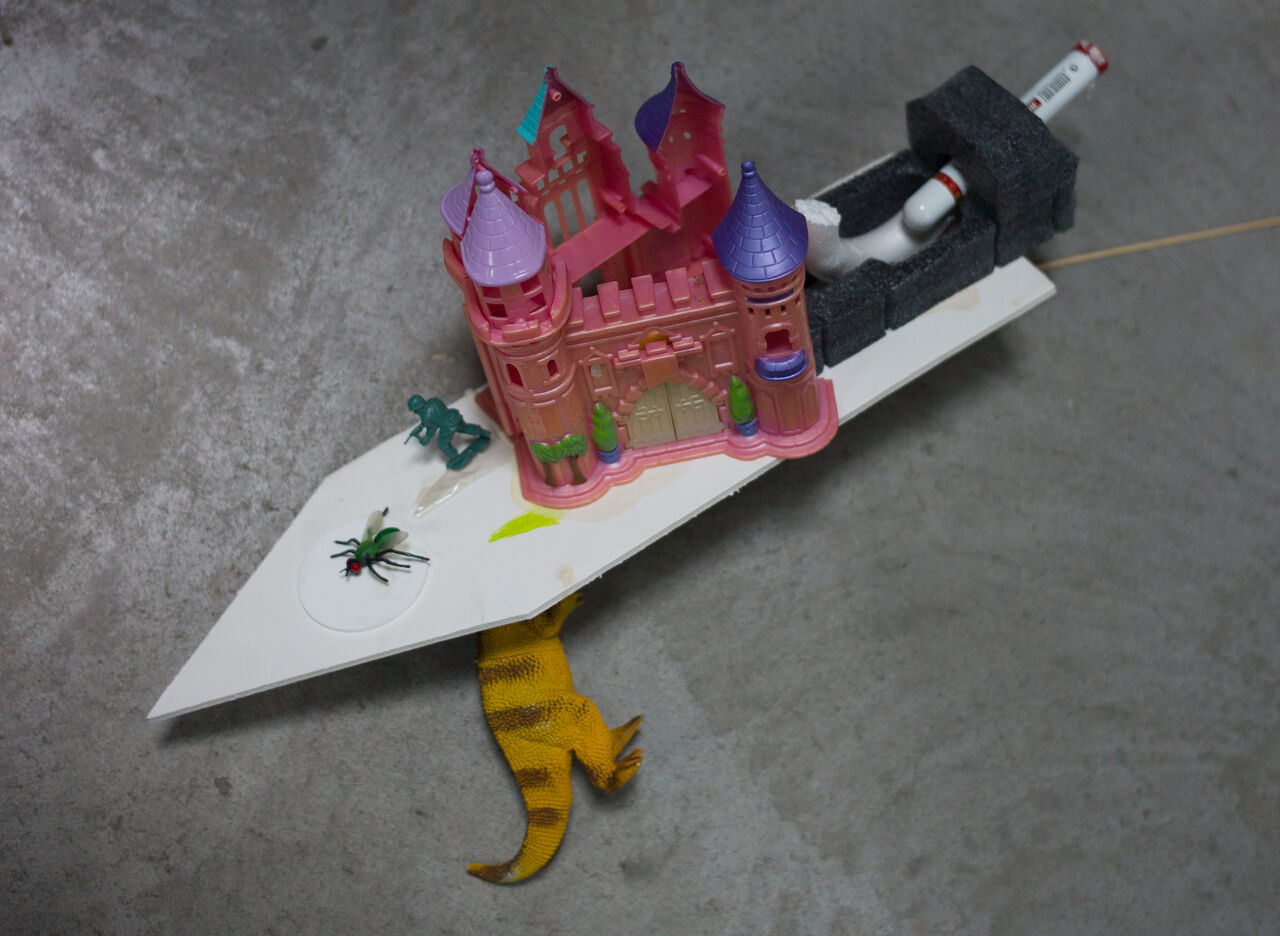
To celebrate this unique get-together, the day culminated in a feast, allowing the journeyers to share food, drink, and tales from places near and far. We conducted the rite of cheese whispering, exchanged ferally traded goods, imbibed trans-local concoctions, and danced around a digital campfire.
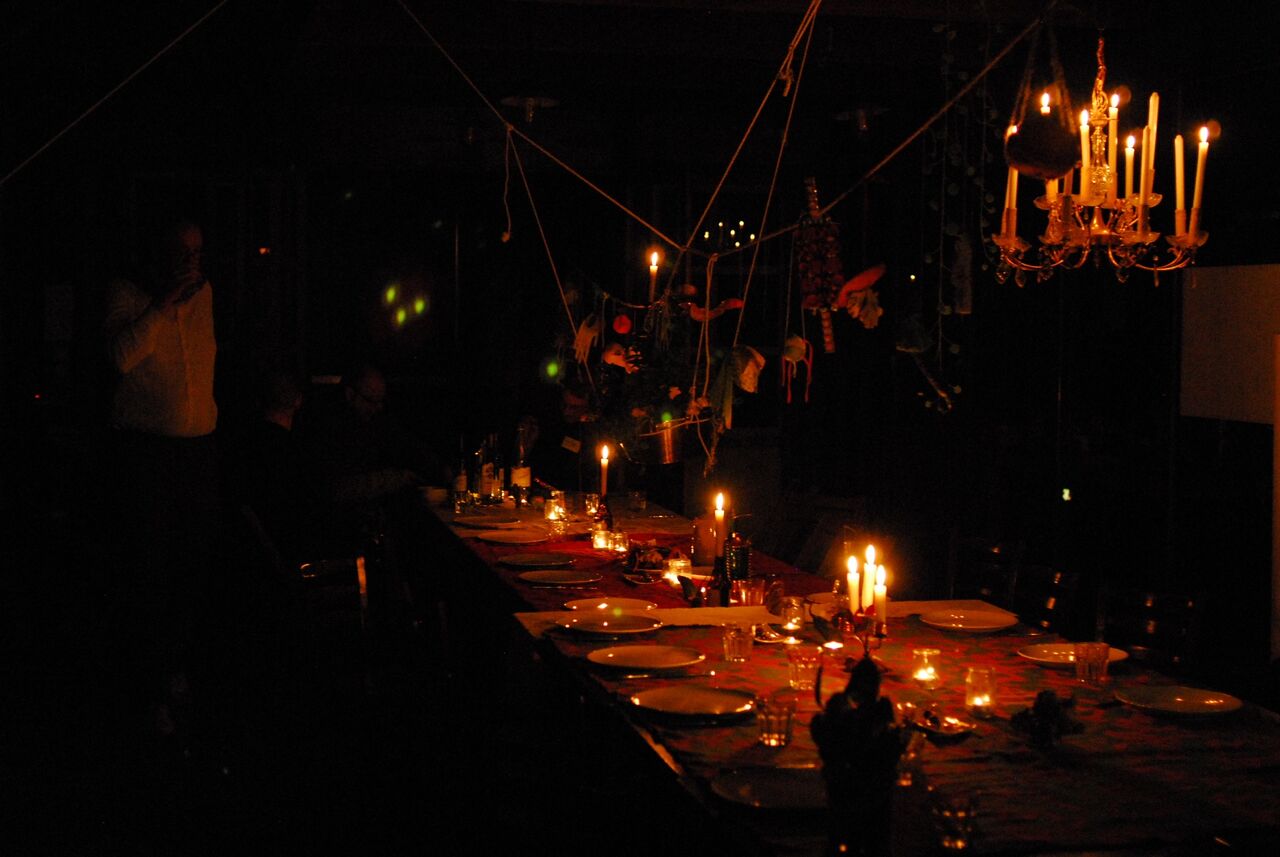
Before you arrive: Getting into character
A few questions to help you get into your role — which is still yourself, but adapted to life on the Flotilla:
- How did you become a Flotilla member, based on who you are and what you do today? What would have to happen in your life and in the world for you to find yourself on the Flotilla?
- What aspects of your character would come to the fore? What knowledge, skills, or talents could be more useful than others?
- What’s your name on the Flotilla? You can choose from this list or summon a name that speaks to your role and character.
- How do you contribute to the collective vision of the Flotilla (revitalising and invigorating people, places, and cultures)?
- What resources do you bring to the Flotilla and what resources does the Flotilla provide for you?
- What are your talents/abilities and contributions you’d like to offer?
- What position (if any) would you like to assume in the Flotilla’s stewardship (i.e. “running of the ship”)? Which of the Flotilla’s crew roles would you be willing to take on?
In the small hours, the Flotilla sailed into a storm that shredded the sails and cut the power, disrupting our navigation systems. The night-shift crew were having too much fun to notice that we had drifted off course, and forgot to wake Limivorous Tactical Grace (the captain) and Hence the Fortress (the engineer on call). When she woke, cold and wobbly, the LTC mustered everyone onboard to set the Flotilla back on course. The crew stumbled from their hammocks, held a consent-based scrum, and, deciding it would be impossible to return to the previous heading, quickly plotted a new one (which prevented many of the journeyers from leaving the Flotilla, triggering a cascading supply shortage).
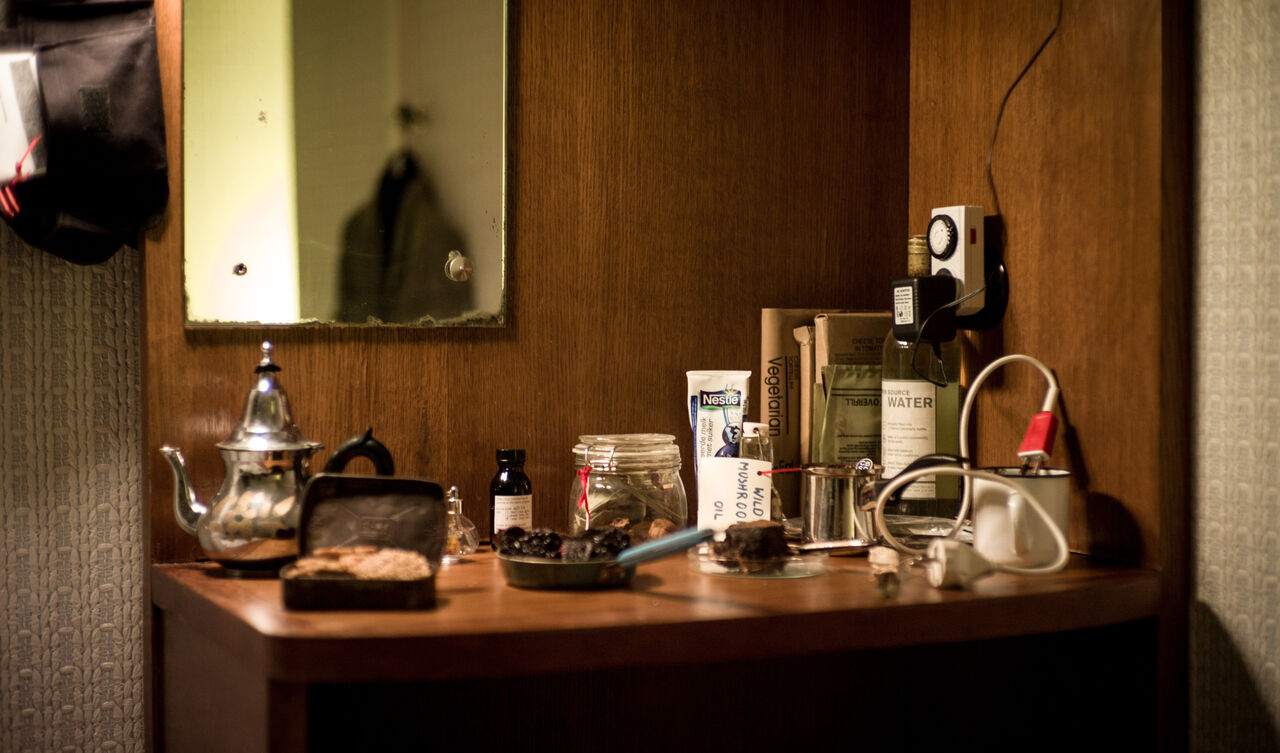
One visiting Resilient had to be evacuated, using a rough-and-ready ladder made from bits of art installations, computer cables, and fishing rope. We saw him reach one of his Unmanned Aerial Systems, but haven’t heard from him since.
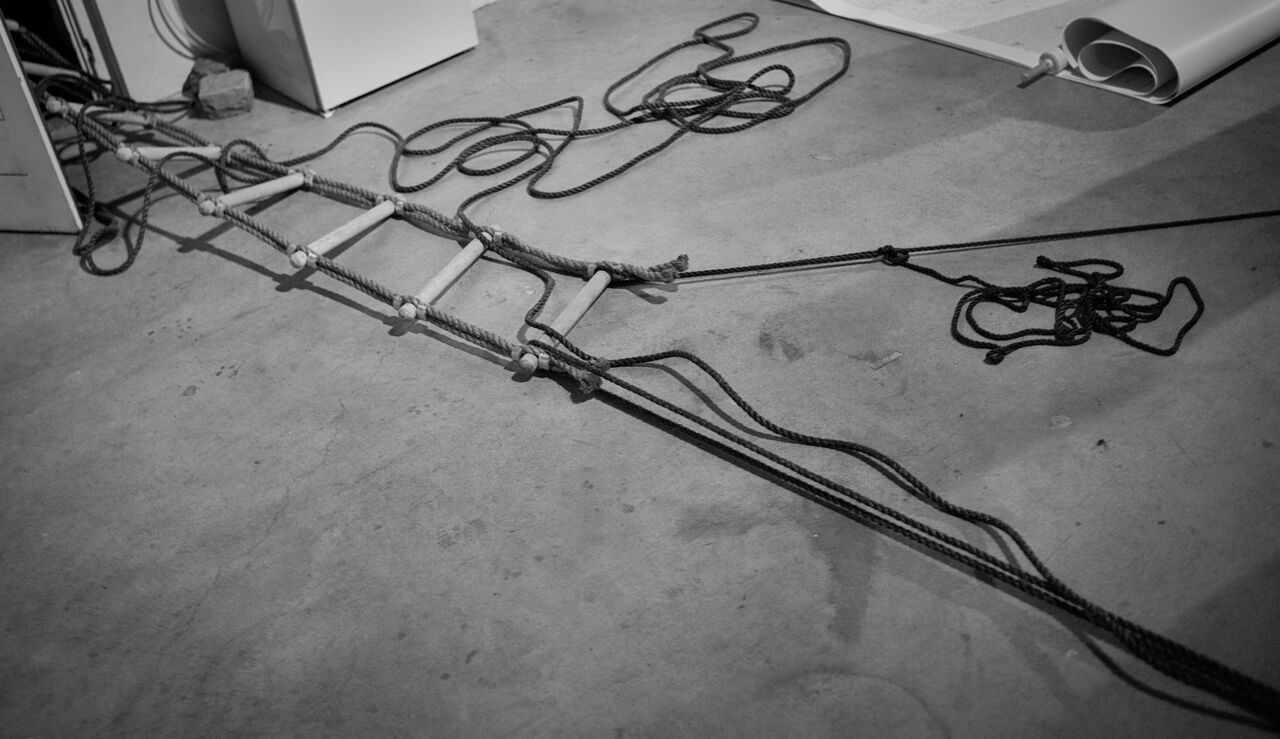
The next morning, we returned to our regular routine of joint cooking, cleaning, gardening, maintenance, and stewardship. After a lunch of artfully remixed leftovers, those journeyers who could still reach their destinations packed their belongings, said their farewells, and pushed off from the Flotilla — to go their separate ways.
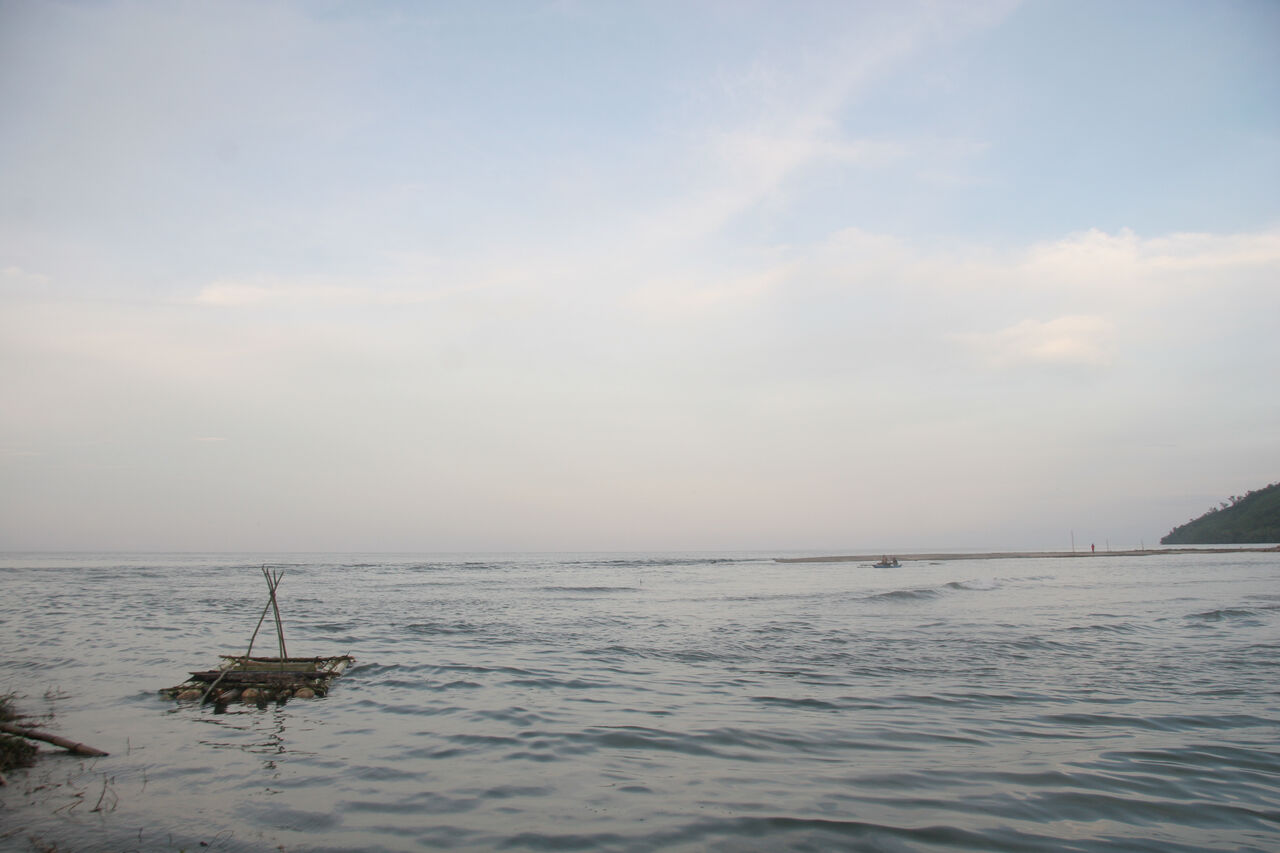
Home is what you take with you, not what you leave behind.
N.K. Jemisin, The Fifth Season
🝓